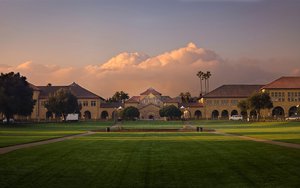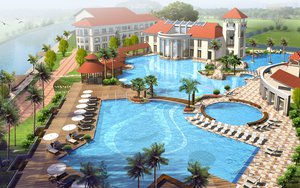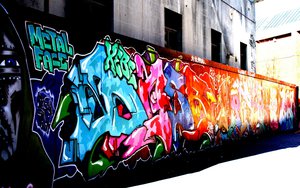Notizie OLA
,
Notizie CLA
Aprile 12, 2021
Nuove Linee Guida
Aprile 2021
Attestazioni di livello moduli di base OLA B1 English for Basic Academic Skills
Si avvisano gli studenti interessati che il servizio CLA relativo alle attestazioni di livello B1 verrà riattivato con inizio dal 12.04.2021, secondo la seguente modalità:
- A superamento della prova, sarà possibile fare il download dell’attestato attraverso la pagina dedicata al singolo studente sulla piattaforma OLA System, cliccando sul pulsante Download Attestato. Il documento potrà essere scaricato entro e non oltre 6 mesi dalla data di sostenimento della prova. Dopo tale scadenza, non sarà più possibile richiedere ed ottenere l’attestato.
Nota: In merito alle prove svolte nell’A.A. 2019-2020, gli interessati potranno scaricare il documento per i prossimi 6 mesi con inizio dal 12.04.2021. Dopo tale data eventuali richieste non saranno accolte. Non è previsto il rilascio degli attestati relativi alle prove svolte negli anni accademici precedenti.
Attestazioni di livello moduli di lingua avanzati
Si avvisano gli studenti interessati che il servizio CLA relativo alle attestazioni di livello moduli avanzati è in fase di programmazione in modalità telematica di richiesta e rilascio del documento. Vi invitiamo a tenervi aggiornati consultando la sezione notizie del sito CLA.
Notizie CLA
Dic. 23, 2020
Il Centro Linguistico di Ateneo rimarrà chiuso fino all' 11 gennaio 2021. Invitiamo gli utenti che hanno necessità di informazioni a contattare il personale dopo tale data.
The Language Centre is closed until January 11th, 2021. Please, send your requests after this date.
Notizie CLA
Dic. 22, 2020
Si informano gli interessati che, per motivi tecnici, il servizio di rilascio attestazioni di livello è momentaneamente sospeso. Avviseremo, tramite avviso sul sito, appena la ripresa di tale servizio sarà possibile. Sarà, tuttavia, garantito il rilascio dell'attestazione di livello per gli studenti che intendono presentare la domanda di partecipazione al bando Erasmus + Traineeship in scadenza a metà gennaio 2021.
Notizie CLA
Ott. 27, 2020
The italian language course - B2 level - will begin on Monday, November 2 at 1:30pm.
Class meetings will take place every week according to the following schedule:
- Monday from 1.30pm-3.30pm (Platform Teams. Access code: 7ql4fab );
- Wednesday from 1.30pm-3.30pm (Platform Teams. Access code: 7ql4fab ).
The module consists of 60 class hours.
Il Corso di Lingua Italiana - Livello B2 a cura del CLA inizierà lunedì 2 novembre 2020 alle ore 13.30 presso la piattaforma Microsoft Teams.
Gli incontri si svolgeranno ogni:
- lunedì dalle 13.30 alle 15.30 - (Platform Teams. Access code: 7ql4fab );
- mercoledì dalle 13.30 alle 15.30 - (Platform Teams. Access code: 7ql4fab ).
Il modulo è composto da 60 ore in aula.
Notizie CLA
Ott. 27, 2020
The italian language course - B1 level - will begin on Thursday , October 29 at 1:30pm.
Class meetings will take place every week according to the following schedule:
- Tuesday from 1.30pm-3.30pm (Platform Teams. Access code: 4e88dxg );
- Friday from 1.30pm-3.30pm (Platform Teams. Access code: 4e88dxg ).
The module consists of 60 class hours.
Il Corso di Lingua Italiana - Livello B1 a cura del CLA inizierà Giovedì 29 ottobre 2020 alle ore 13.30 presso la piattaforma Microsoft Teams.
Gli incontri si svolgeranno ogni:
- martedì dalle 13.30 alle 15.30 - (Platform Teams. Access code: 4e88dxg );
- venerdì dalle 13.30 alle 15.30 - (Platform Teams. Access code: 4e88dxg ).
Il modulo è composto da 60 ore in aula.
Notizie CLA
Ott. 27, 2020
The italian language course - A2 level - will begin on Friday, October 30 at 1:30pm.
Class meetings will take place every week according to the following schedule:
- Friday from 1.30pm-3.30pm (Platform Teams. Access code: 313gtxg);
- Saturday from 1.30pm-3.30pm (Platform Teams. Access code: 313gtxg).
The module consists of 60 class hours.
Il Corso di Lingua Italiana - Livello A2 a cura del CLA inizierà Venerdì 30 ottobre 2020 alle ore 13.30 presso la piattaforma Microsoft Teams.
Gli incontri si svolgeranno ogni:
- venerdì dalle 13.30 alle 15.30 - (Platform Teams. Access code: 313gtxg );
- sabato dalle 13.30 alle 15.30 - (Platform Teams. Access code: 313gtxg ).

Il modulo è composto da 60 ore in aula.
Notizie CLA
Ott. 27, 2020
The italian language course - A1 level - will begin on Monday, November 2 at 1:30pm.
Class meetings will take place every week according to the following schedule:
- Mondays from 1.30pm-3.30pm (Platform Teams. Access code: qfcvsmb);
- Wednesdays from 1.30pm-3.30pm (Platform Teams. Access code: qfcvsmb).
The module consists of 60 class hours.
Il Corso di Lingua Italiana - Livello A1 a cura del CLA inizierà Lunedì 2 novembre 2020 alle ore 13.30 presso la piattaforma Microsoft Teams.
Gli incontri si svolgeranno ogni:
- lunedì dalle 13.30 alle 15.30 - (Platform Teams. Access code: qfcvsmb);
- mercoledì dalle 13.30 alle 15.30 - (Platform Teams. Access code: qfcvsmb).
Il modulo è composto da 60 ore in aula.
Notizie CLA
Set. 24, 2020
Per l'avviso in oggetto si rimanda all'allegato.
Notizie OLA
,
Notizie CLA
Set. 21, 2020
Avviso in allegato.
Notizie OLA
,
Foundation Module
,
Notizie CLA
Ago. 31, 2020
Si avvisano gli studenti che il link per iscriversi al placemet test è il seguente:
http://cla.unical.it/placement
Si precisa, inoltre, che nella creazione dell'account il criterio di generazione della password è impostato su un minimo di 8 caratteri è che non è necessario inserire il numero di matricola per la registrazione alla piattaforma.
Notizie CLA
Luglio 10, 2020
Notizie CLA
Giugno 30, 2020
CALL FOR PAPERS - Innovation in Language Learning International Conference - 13th Edition
Extended Abstract Submission Deadline: 3 July 2020
All accepted papers will be published in the Conference Proceedings with ISBN, ISSN, DOI, ISPN codes. The Proceedings will be included in Academia.edu and indexed in Google Scholar. The Proceedings will be sent to be reviewed for inclusion in the Conference Proceedings Citation Index by Thomson Reuters (ISI-Clarivate). Selected papers will be indexed by Ei Compendex, SCOPUS (Elsevier), Emerging Sources Citation Index (ESCI - Web of Science).
Make your contribution to innovation in language learning, SUBMIT your paper now.
https://conference.pixel-<wbr/>online.net/ICT4LL/<wbr/>callforpapers.php
Health and Safety issues in relation to COVID-19.
In case participants are not able to attend on-site, online, interactive, attendance/presentation opportunities are available. Participants attending/presenting online will benefit of a discounted fee. Every precaution possible is taken to create a safe environment for participants attending on-site (masks, gloves, distance seating, disinfection etc.). Finally, should the conditions do not allow the conference to be held on-site as expected, the event will shift to a fully virtual format.
Notizie CLA
,
Studio in Autonomia
Aprile 7, 2020
In allegato il file contenente le Linee Guida per svolgere le attività di Studio in Autonomia (SiA) richieste dal percorso linguistico B1 OLA. Il Codice per accedere al tutoraggio, tramite il sistema Teams, è h8f72wz.
Notizie CLA
Marzo 9, 2020
Si avvisano gli studenti che il ricevimento relativo agli Attestati di Livello risulta sospeso in accordo con le misure di contenimento e gestione dell’emergenza epidemiologica da COVID-2019, previste dal Decreto Rettorale N.395 del 08.03.2020.
Notizie OLA
,
Notizie CLA
Marzo 5, 2020
Al fine di contenere e gestire l’emergenza epidemiologica da COVID-19 e in ottemperanza alle disposizioni normative previste nel Decreto emanato dal PDCM, così come disposto dal Decreto Rettorale del 27 febbraio, si avvisano gli studenti che tutte le attività previste sono sospese a data da destinarsi.
Notizie CLA
Feb. 28, 2020
Di seguito il link per sapere di più sulla notizia in oggetto:
https://www2.macmillaneducation.es/2020/WE/UK/spring-conference-nexus/index.html
Notizie CLA
Gen. 13, 2020
2020 Macmillan Advancing Learning Webinars per maggiori informazioni segui il link: https://www2.macmillaneducation.es/WE/advancing_learning/Advancing_Learning_2020_WE/index.html
Notizie OLA
,
Notizie CLA
Ott. 28, 2019
Si informano gli studenti che da lunedì 14 ottobre inizierà il Laboratorio di Lingua Italiana L2 - Livello B2. Gli incontri si terranno presso il CLA, Cubo 25 C oggni:
- martedì dalle 15 alle 17 presso il Laboratorio Multimediale;
- mercoledì dalle 15 alle 17 presso l'aula Marrone;
- giovedì dalle 15 alle 17 presso l'aula Blu.
Gli studenti interessati sono invitati a partecipare.
Notizie OLA
,
Notizie CLA
Ott. 28, 2019
Si informano gli studenti che da lunedì 14 ottobre inizierà il Laboratorio di Lingua Italiana L2 - Livello A. Gli incontri si terranno presso il CLA, Cubo 25 C oggni:
- lunedì dalle 15 alle 18 presso l'aula Blu;
- venerdì dalle 15 alle 18 presso l'aula marrone.
Gli studenti interessati sono invitati a partecipare.
Notizie CLA
Ott. 23, 2019
Language Learning in Higher Education
(LLHE)
Journal of CercleS
(European Confederation of Language Centres in Higher Education)
Special Issue
2019-2020
Enhancing the Role of European University Language Centres: past achievements and future perspectives
Call for Papers
The European Confederation of Language Centres in Higher Education - CercleS - is pleased to announce the Call for Papers for a Special Issue of the LLHE Journal, the aim of which is to celebrate the approaching 30th anniversary of CERCLES (1991-2021).
The aim of this LLHE Special Issue is to create an occasion for language scholars, professionals and practitioners to share ideas about research and didactics relating to language development which stems from the input CercleS has created over the years. The Special Issue wants to offer the opportunity for a collaborative debate which will involve the many members of the Associations of Language Centres in Europe who, thanks to their varied working and geographical backgrounds, will inform the community of language professionals about past and present experiences and thus enrich the overall discussion. It is, indeed, CercleS’ wish to embrace a number of different perspectives in order to promote in-depth reflection on issues relating to the well-being of University Language Centres and the development of language competences among the generations of students and the population in general.
Critical thinking is a concept of paramount importance for learners’ global development, both from a cultural and social point of view as well as from a linguistic and multilingual perspective. CercleS strongly believes that it is the duty of language scholars and professionals never to forget the role that languages have in society and the role that University Language Centres play in language acquisition and learning. Moreover, CercleS is aware of the many achievements that, within the European context, have been reached throughout the years and the numerous efforts which have been made in order to shed light on the relevance linguistic issues have within academic contexts and, more broadly, within society. Thus, this LLHE Special Issue wants both to acknowledge the successes of CercleS and also envision future goals.
Articles and activity reports addressing the themes highlighted below would be most welcome. They can be written in English, French, German. The aim is to enhance the multilingual aspect of the issue, which wants to emphasize the wide range of cultures and communication styles that practitioners in University Language Centres come into contact with during their academic life. Experiences will therefore be considered from a European perspective and beyond, thus providing participants with insights that should help reinforce the concept of belonging to a community of practice that crosses geographical boundaries.
Themes have been chosen to include wide areas which have favoured important changes in the fields of Language Centres’ management and organization, language learning and research, language teaching. Such areas foster significant debate on how languages naturally interweave with changes and development in the current world. They are intentionally broad so as to encourage the sharing of a wider range of backgrounds, findings, expertise, ideas and discussions:
University Language Centres within an international perspective
- Language planning and policy in the academic world
- Management, administration and daily life of University Language Centres: strengths, weaknesses, opportunities, threats
- University Language Centres and Internationalization issues
- European projects in higher education
- University Language Centres and Learners’ Internships
- Quality assurance in University Language Centres
University Language Centres and Research within a changing society: achievements and future perspectives
- Discourse and interaction analysis
- Bilingualism, plurilingualism and translanguaging in higher education
- Translation, interpretation and mediation
- Intercomprehension and the challenge of sharing experiences with refugees
- Social and cultural dimensions of language acquisition and use
University Language Centres and Didactic issues: best practices and ideas for the future
- Languages for academic and professional contexts
- Language and Content for learners’ intercultural growth
- Autonomous Learning, European Language Portfolios and the new CEFR challenges (2001-2018)
- Integrated approaches in language learning: the gradual move from frontal and formal teaching to humanistic approaches and collaborative learning
- Creativity in language learning and teaching: strategies for fostering creative and critical thinkers
- Academic oriented assessment and international certifications
- Language, technology and new media.
If you are interested in any of the topics highlighted above and want to share your ideas, please submit an article or activity report in English, French or German. Please specify the set of topics to which you would like to refer.
Timeline
Submission of articles Early December 2019
Review process January-March 2020
Notification of acceptance April 2020
Revision of articles April-June 2020
Copy-editing June-July 2020
Manuscripts to production Early August 2020
Presentation of the forthcoming issue September 2020 at CercleS Conference in Brno
Publication of the Special issue December 2020
Submissions should be sent as e-mail attachments, in Word and PDF format, to:
- Carmen Argondizzo (guest editor), Università della Calabria; carmen.argondizzo@unical.it
- Gillian Mansfield (guest editor), Università di Parma; gillian.masfield125@gmail.com
- Breffni O’Rourke (editor-in-chief), Trinity College Dublin;
- Liliana Szczuka-Dorna (editor-in-chief), Poznan University of Technology;
Articles should be between 5000 and 7000 words in length (including references but excluding tables, figures and appendices). Those that report on empirical or experimental research should carry clear and explicit pedagogical implications, while those concerned with a practical dimension of language learning/teaching should include discussion of research-based principles. Articles on other areas of interest should include critical engagement with current discussion in the relevant literature. Submissions that the guest editors and editors-in-chief judge worthy of serious consideration will be peer-reviewed. Articles should be presented as follows:
1. Name of author(s)
2. Title of article
3. Abstract (200–250 words)
4. Key words (between 5 and 7)
5. Name of author(s) followed by institutional affiliation(s) and e-mail address(es). If there are two or more authors, please indicate which of them should receive correspondence
6. Text of article
7. References
8. Appendices
9. Tables and/or figures in the order in which they appear in the article
Activity reports should be between 2000 and 3000 words and should focus on an innovative activity carried out in a language centre and likely to be of interest to colleagues in other language centres. Submissions will be reviewed by the editors-in-chief and the assistant editors. Activity reports should be presented as follows:
1. Name of author(s)
2. Title of activity report
3. Abstract (150–200 words)
4. Key words (between 5 and 7)
5. Name of author(s) followed by institutional affiliation(s) and e-mail address(es). If there are two or more authors, please indicate which of them should receive correspondence
6. Text of activity report organized as follows:
a) Description of context
b) Account of activity
c) Summary of results/experience
d) Future prospects
7. References (if any)
8. Appendices (if any)
9. Tables and/or figures (if any)
Whether you are submitting an article or an activity report, please observe the following conventions:
- Margins: 2.5 cm
- Font: Times New Roman 12pt
- Paragraph spacing: 1.5 lines
- Numbering of sections and sub-sections: please follow the publisher’s style sheet (appended to these guidelines)
- Indent the first line of each paragraph by pressing the tab key once
- No space after paragraphs
- As indicated above, tables and figures should be inserted in sequence at the end of your text file. Indicate roughly where each table/figure should occur by inserting in your text:
[Please insert Table/Figure X here]
- Footnotes should be used sparingly and inserted using the INSERT FOOTNOTE function in Word
- Figures, screenshots, etc. should be submitted as high-resolution images
- References, both in the running text and in the list at the end of the article, should be presented strictly according to the publisher’s style sheet (appended to these guidelines)
- Submissions that fail to observe these conventions will not be considered for publication


















































































